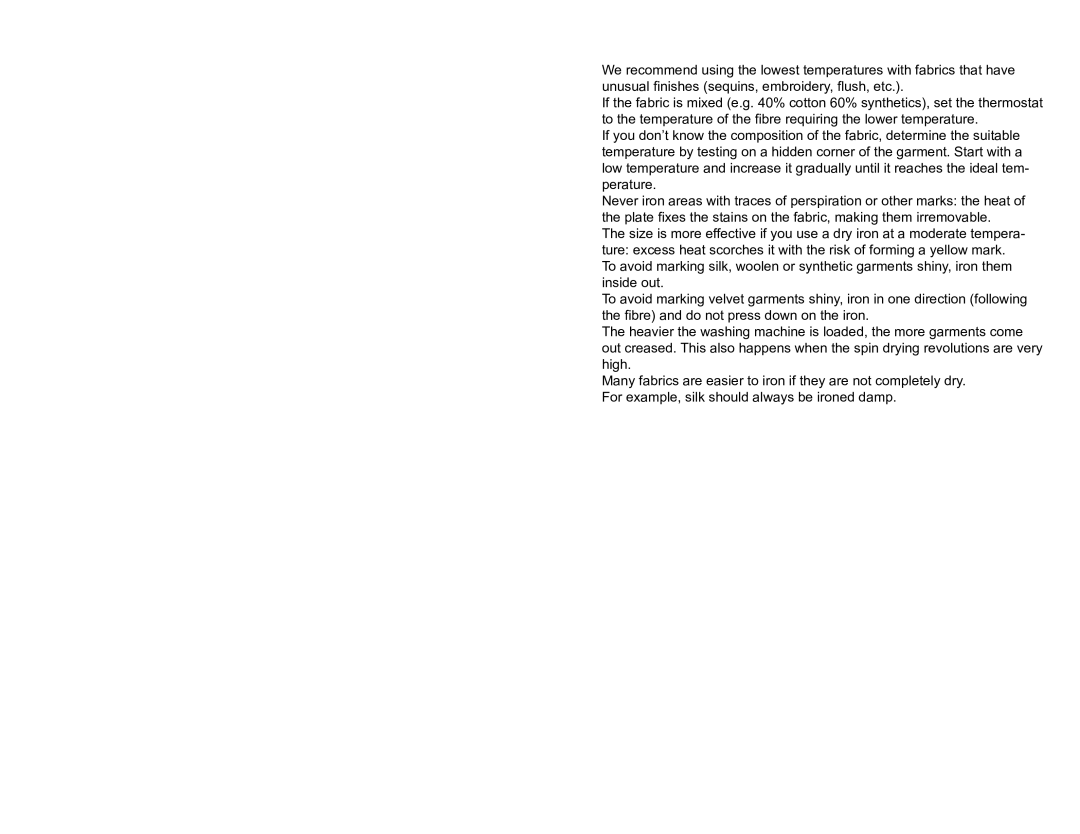We recommend using the lowest temperatures with fabrics that have unusual finishes (sequins, embroidery, flush, etc.).
If the fabric is mixed (e.g. 40% cotton 60% synthetics), set the thermostat to the temperature of the fibre requiring the lower temperature.
If you don’t know the composition of the fabric, determine the suitable temperature by testing on a hidden corner of the garment. Start with a low temperature and increase it gradually until it reaches the ideal tem- perature.
Never iron areas with traces of perspiration or other marks: the heat of the plate fixes the stains on the fabric, making them irremovable.
The size is more effective if you use a dry iron at a moderate tempera- ture: excess heat scorches it with the risk of forming a yellow mark. To avoid marking silk, woolen or synthetic garments shiny, iron them inside out.
To avoid marking velvet garments shiny, iron in one direction (following the fibre) and do not press down on the iron.
The heavier the washing machine is loaded, the more garments come out creased. This also happens when the spin drying revolutions are very high.
Many fabrics are easier to iron if they are not completely dry. For example, silk should always be ironed damp.
